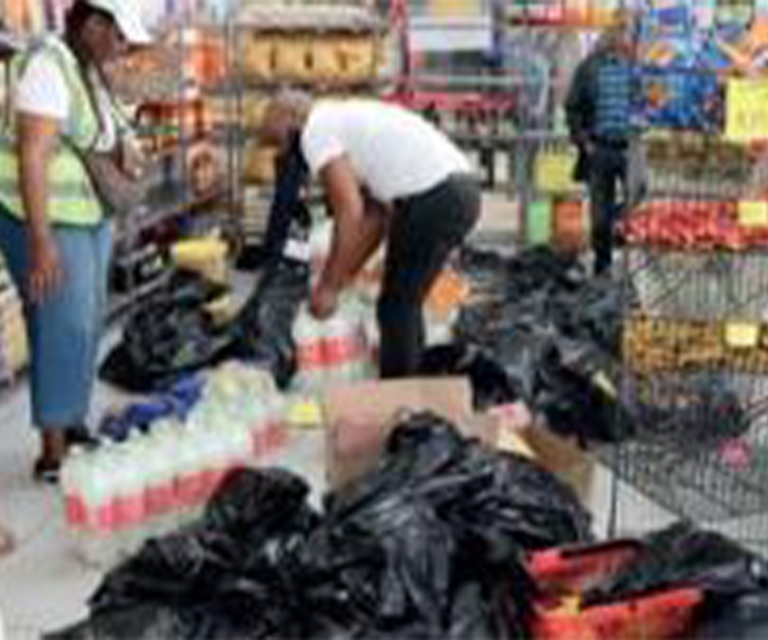Have you heard the latest news? President Ramaphosa has just made a big announcement about food safety in South Africa. It’s a pretty serious situation, with the government acting to close down spaza shops, supermarkets, and even some warehouses. Let’s dive into what’s happening and why it matters to all of us.
Our President didn’t mince words when he talked about the food safety issues we’re facing. He’s really worried about the health of South Africans, and he’s not taking any chances. It’s like when your mom tells you to wash your hands before dinner – she just wants to keep you safe, right?
Now, I know it might sound scary that so many shops are being closed, but there’s a good reason for it. Think of it like a big clean-up operation to make sure the food we’re buying is safe to eat. It’s affecting all kinds of places where we buy food, from the little spaza shop on the corner to the big supermarkets we all know.
Scope of Inspections and Actions Taken
The government’s been busy, let me tell you! They’ve sent out teams to check on a whopping 200,000 spaza shops all over South Africa. It’s like a massive health check-up for our food stores. These teams aren’t just health inspectors – they’ve got all sorts of experts working together to make sure everything’s up to scratch.
Sadly, not everyone passed the test. Over 1,000 shops had to be closed down because they weren’t meeting the safety standards. The inspectors also had to take away some of the goods they found. It’s a bit like when your teacher confiscates something in class – it’s not fun, but it’s for everyone’s good.
Some shop owners even got fined for not following the rules. It’s a tough lesson, but it’s all about making sure we can trust the food we’re buying.
Importance of Spaza Shops in the Economy
Now, let’s talk about why spaza shops are so important. These little shops are like the heartbeat of many communities, especially in townships and rural areas. They’re not just places to buy food – they’re where neighbors meet, chat, and keep the local economy ticking.
For millions of South Africans, spaza shops are a lifeline. They’re often just around the corner, making it easy to grab what you need without a long trip to the supermarket. It’s like having a friendly neighbor who always has that cup of sugar you need to borrow!
Foodborne Illness Outbreak and Response
Now, here’s where things get really serious. We’ve had some really sad news lately about people getting sick from food, and it’s even led to over 22 deaths, including children. It’s heartbreaking, and it’s what’s pushed the government to take such strong action.
When something like this happens, it’s like a big red flag. The government had to step in quickly to stop more people from getting sick. It’s a bit like when there’s a big storm coming, and everyone needs to prepare – it’s urgent and necessary.
Government Measures to Address Contamination
One of the big problems they found was dangerous pesticides being sold. The government’s cracking down on this to make sure these harmful chemicals don’t end up in our food. It’s like making sure the ingredients for your favorite meal are all safe and good for you.
They’re also focusing on keeping kids safe from harmful stuff. After all, our little ones are the most precious, aren’t they? The government’s working hard to make sure children aren’t exposed to anything that could make them sick.
Registration and Compliance Requirements
President Ramaphosa’s given all spaza shops and food-handling places 21 days to register with their local municipalities. It’s like signing up for a club – once you’re on the list, it’s easier to keep track of everyone and make sure they’re following the rules.
This registration is super important. It helps the government keep an eye on things and make sure everyone’s playing by the same safety rules. It’s all about making our food safer in the long run.
Community Impact and Concerns
Now, I’ve been chatting with folks in my neighborhood, and I can tell you, people have mixed feelings about all this. Some are relieved that action is being taken, while others are worried about where they’ll buy their groceries now.
It’s a tricky balance, isn’t it? We all want safe food, but we also know how important these small shops are for many people’s livelihoods. It’s like trying to keep everyone happy at a family gathering – not always easy, but important to try!
Legal and Regulatory Enforcement
The police and other officials are going to be busy making sure everyone follows these new rules. It’s not about getting people in trouble, though – it’s about keeping us all safe.
Mention the government’s focus on stricter oversight of food-handling practices
There’s going to be a much closer eye on how food is handled from now on. It’s like when your mom watches you cook to make sure you’re doing it right – a bit annoying maybe, but ultimately helpful!
Long-term Implications for Food Safety
To wrap things up, the government’s showing they’re serious about stopping this kind of thing from happening again. It’s a big job, but an important one.
Reflect on the potential benefits of enhanced food safety regulations for public health
In the long run, these new rules and checks could make a real difference to our health. It might be a bit of a shakeup now, but imagine how good it’ll feel to buy food without worrying about whether it’s safe or not. That’s something we can all look forward to!

